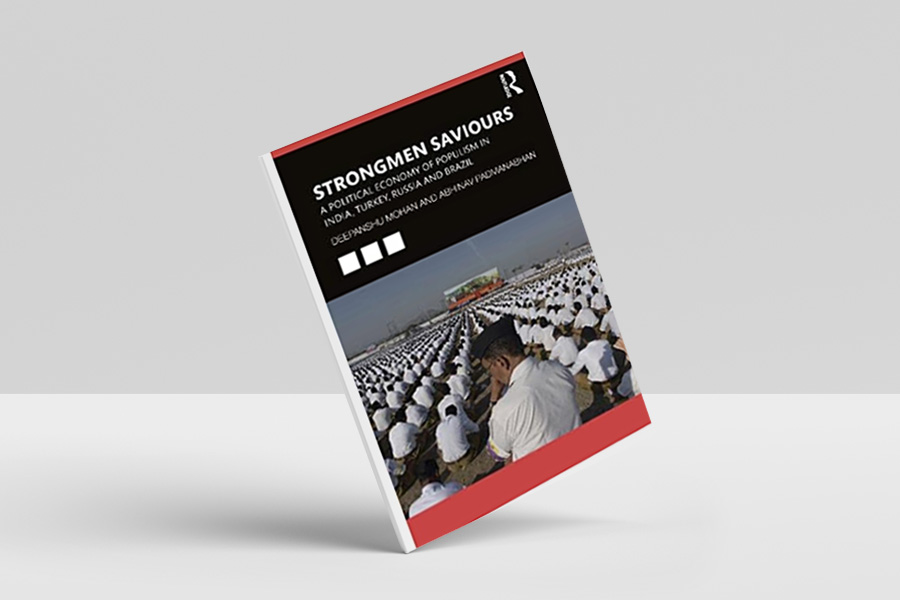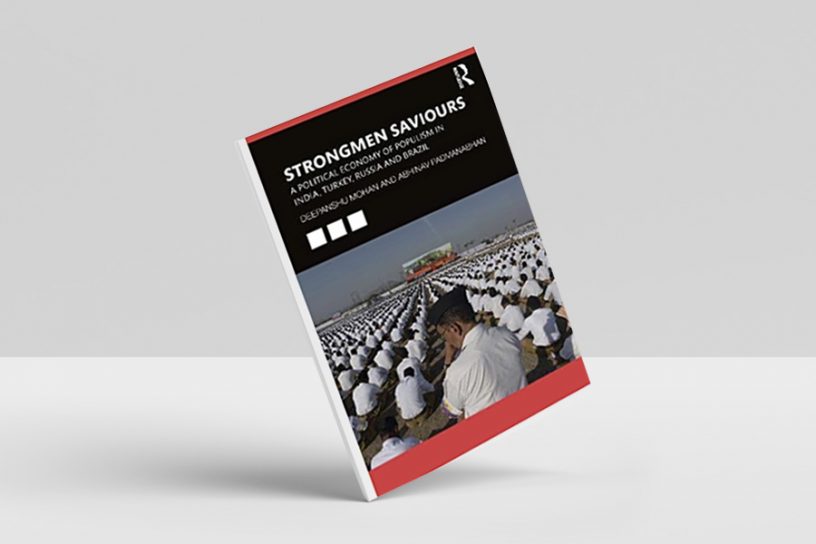
Taking the case studies of India, Turkey, Russia and Brazil, this book offers both a better understanding of each country’s slide towards ‘strongman’ authoritarianism and an analysis of the common elements shared between them.
Authors
Deepanshu Mohan, Associate Professor of Economics and Director, Centre for New Economics Studies (CNES), Jindal School of Liberal Arts and Humanities, O.P. Jindal Global University, Sonipat, Haryana, India.
Abhinav Padmanabhan, Teaching and Research Fellow at the Jindal School of International Affairs and a Senior Research Assistant at CNES, Jindal School of Liberal Arts and Humanities, O.P. Jindal Global University, Sonipat, Haryana, India.
Summary
This book is an introduction to right-wing populist movements outside the West, looking at four key case studies, their commonalities and differences.
Populism has been on the rise worldwide since the global financial crisis of 2008, with few countries left entirely untouched by the phenomenon.
At the same time, the specific circumstances of different countries vary considerably; and it is important that in seeking to understand these movements, we do not assume they are all the same – albeit that they have some characteristics in common.
This book takes the case studies of India, Turkey, Russia and Brazil in turn, examining how they have each taken quite distinct journeys to similar destinations. It offers both a better understanding of each country’s slide towards ‘strongman’ authoritarianism and an analysis of the common elements shared between them.
This book is an essential introduction to the rise of populism outside the West for students of international political economy and comparative politics.
Published by: (Forthcoming) Routledge
To know more about the book, please click here.


